
Get In Touch
Request more info or book a tour.
Fill in the form and we'll get back to you in no time!
The Government of al-Assad has finally fallen after more than 50 years of brutal repression that led to a fragmented and impoverished country drowned by sanctions and a post-war crisis.
A new era that will imply more freedom for Syrians has just begun and this will be your only chance to witness such a historical moment of transition in Syria.
From exploring the narrow alleys of the old city of Damascus and Aleppo to discovering ancient Medieval castles, remote monasteries, and Roman sites, Syria is one of the richest countries in terms of history.
In this expedition, we always explore Syria’s most precious sites, but the trip will also focus heavily on Syria’s most human side.
This means that we will interact and get to know kind-hearted Syrians, while witnessing their struggle and desire to return to normality.
Please note that this video was filmed and posted in 2023, when Syria was still under Bashar al-Assad’s regime.
March 30th to April 6th, 2026
$1890 US dollars
8 days
Led by Pau Valero
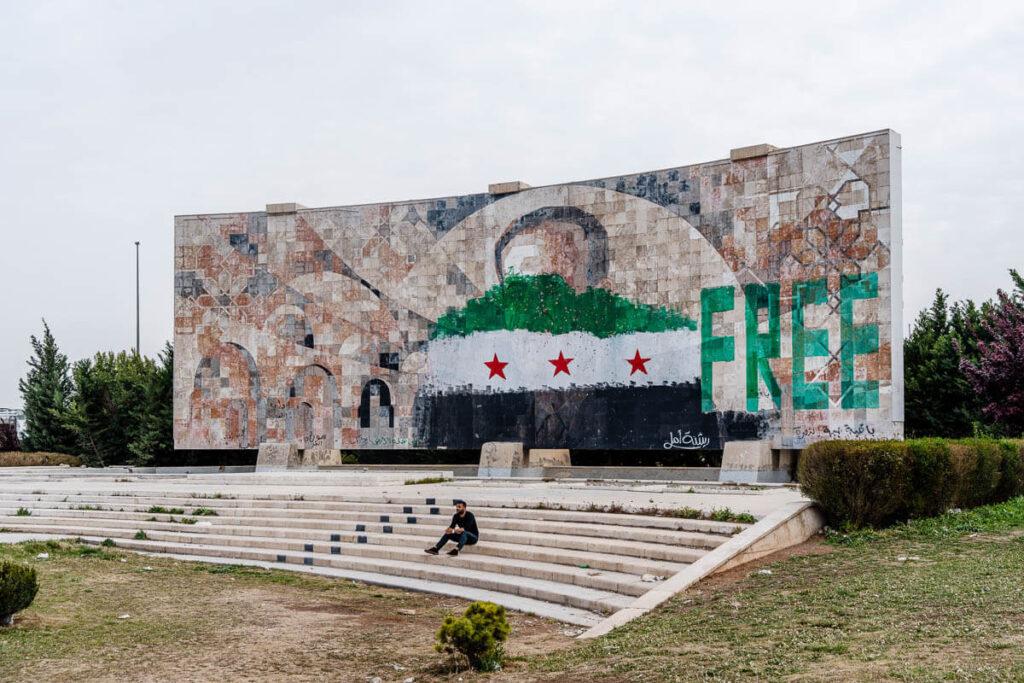
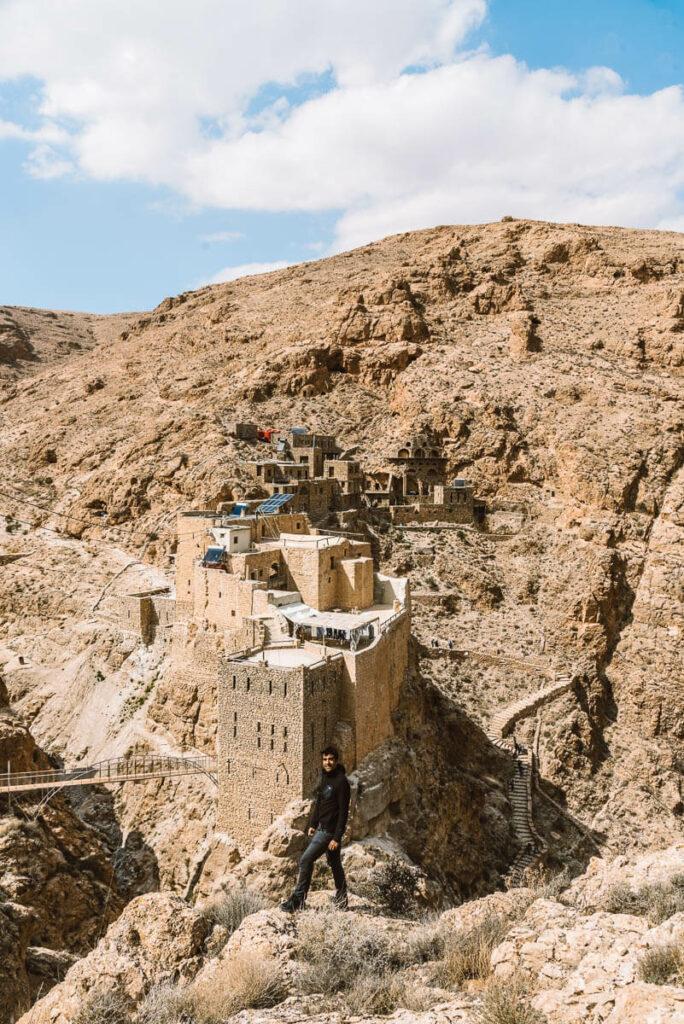
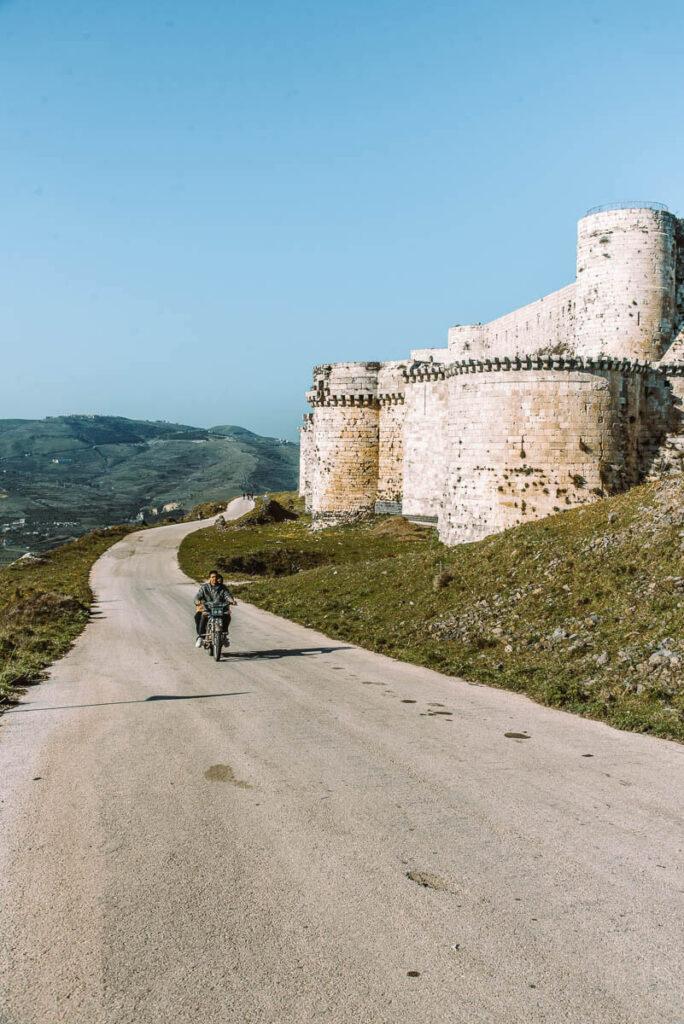
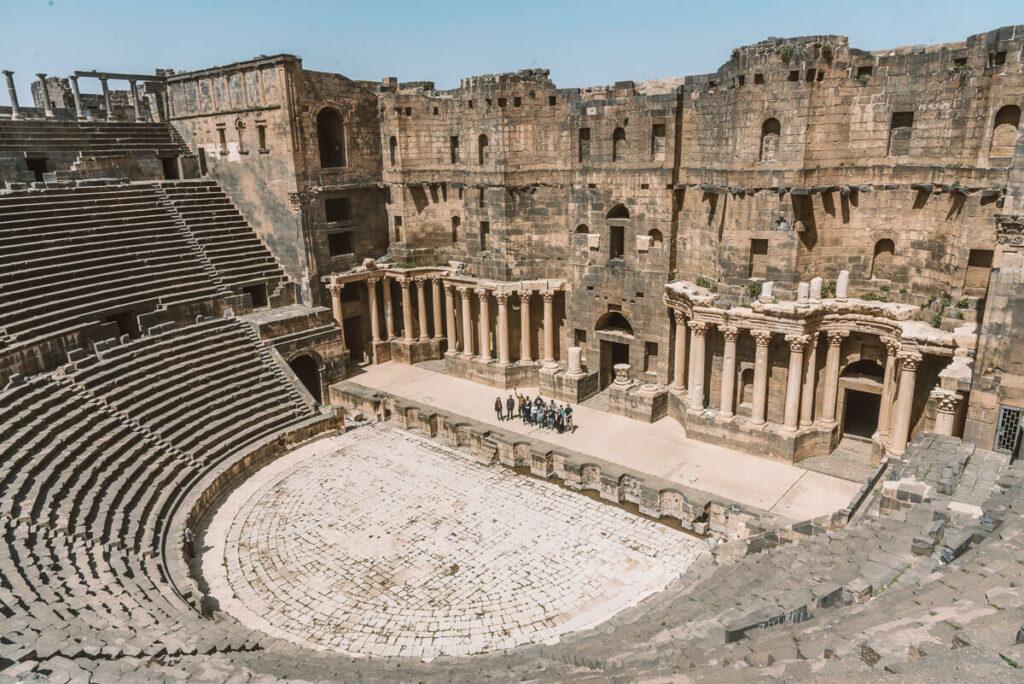
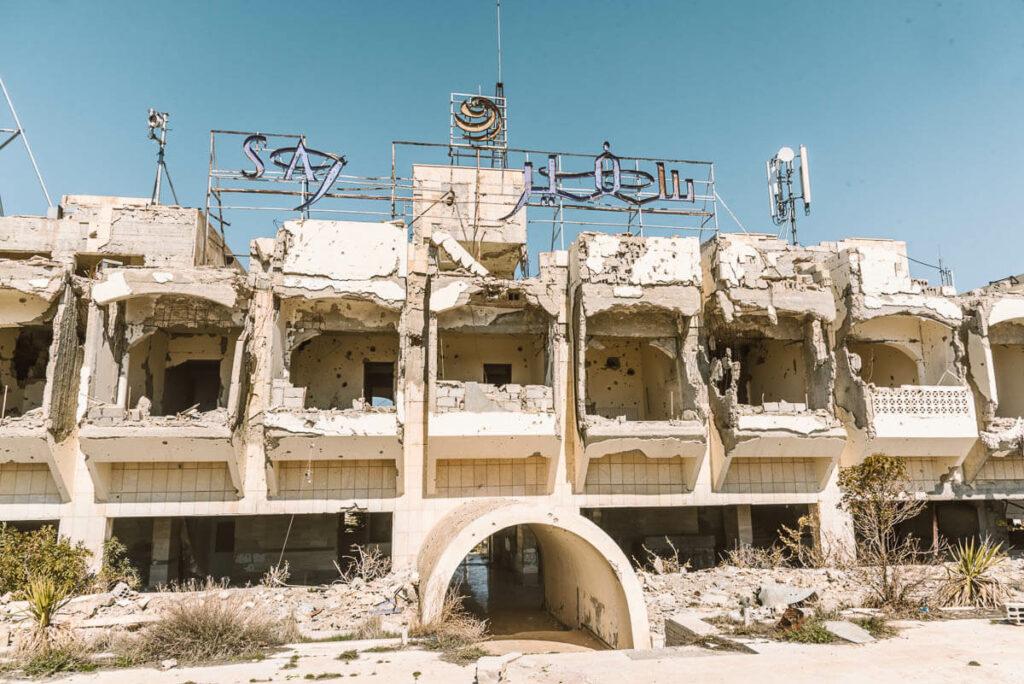
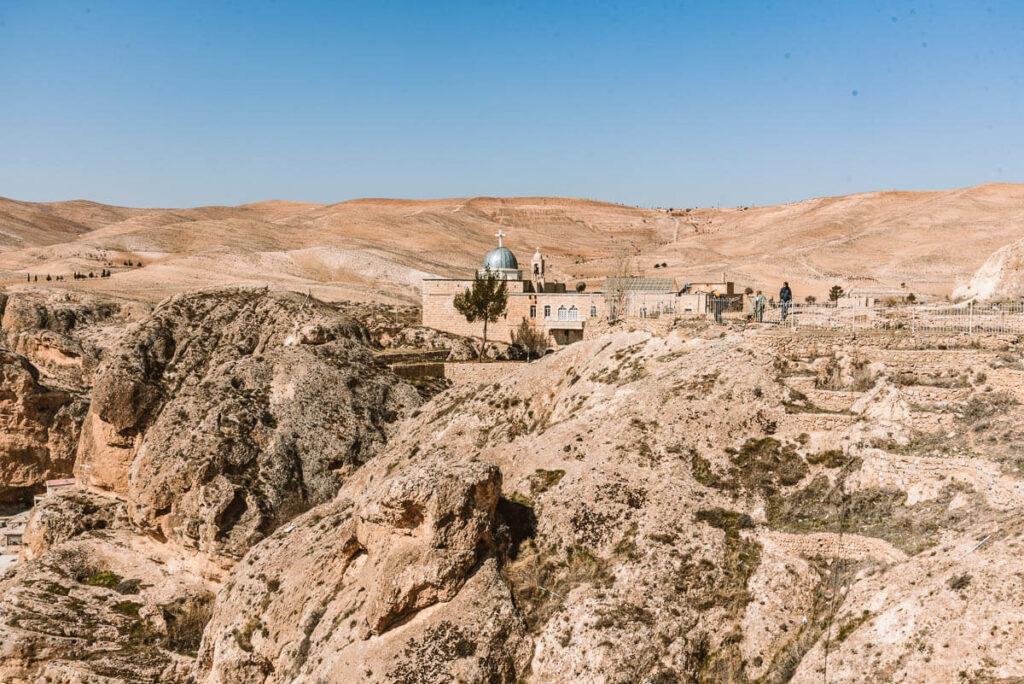
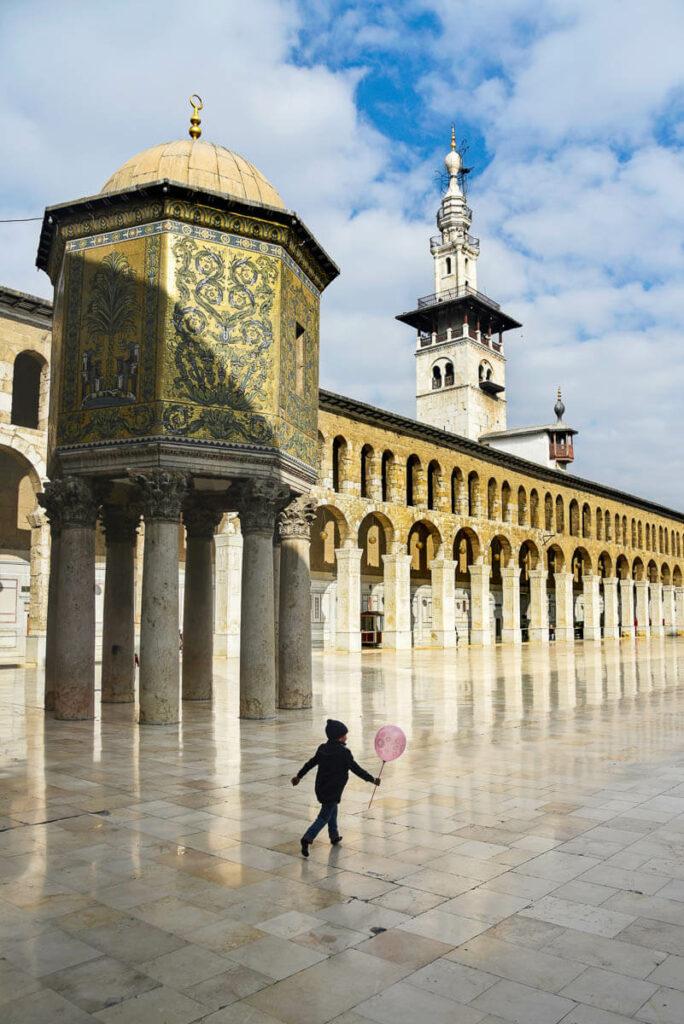
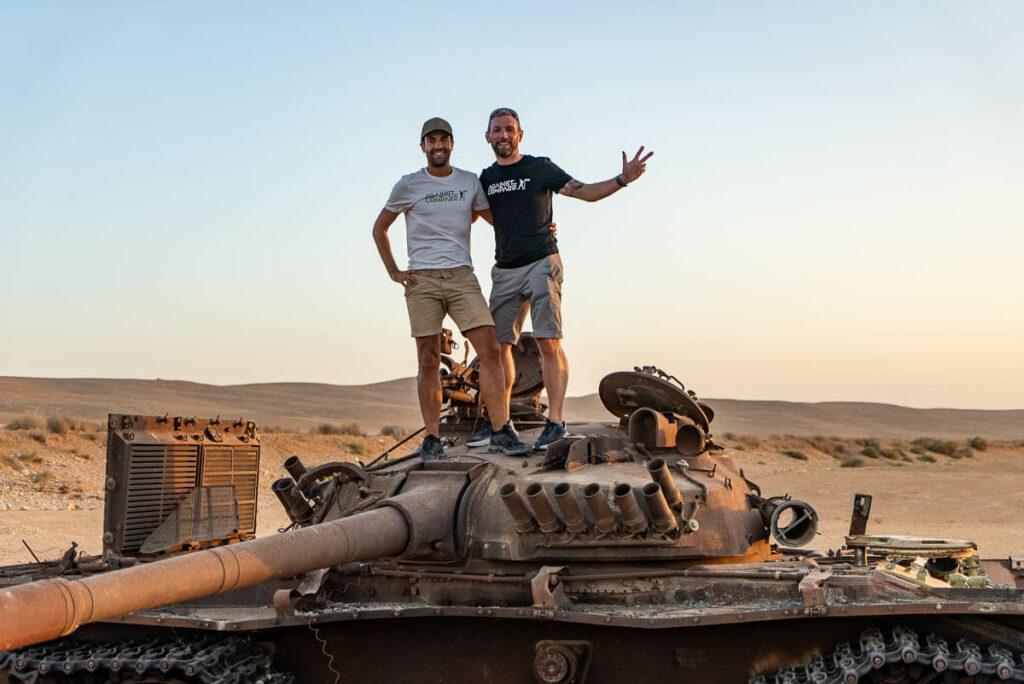
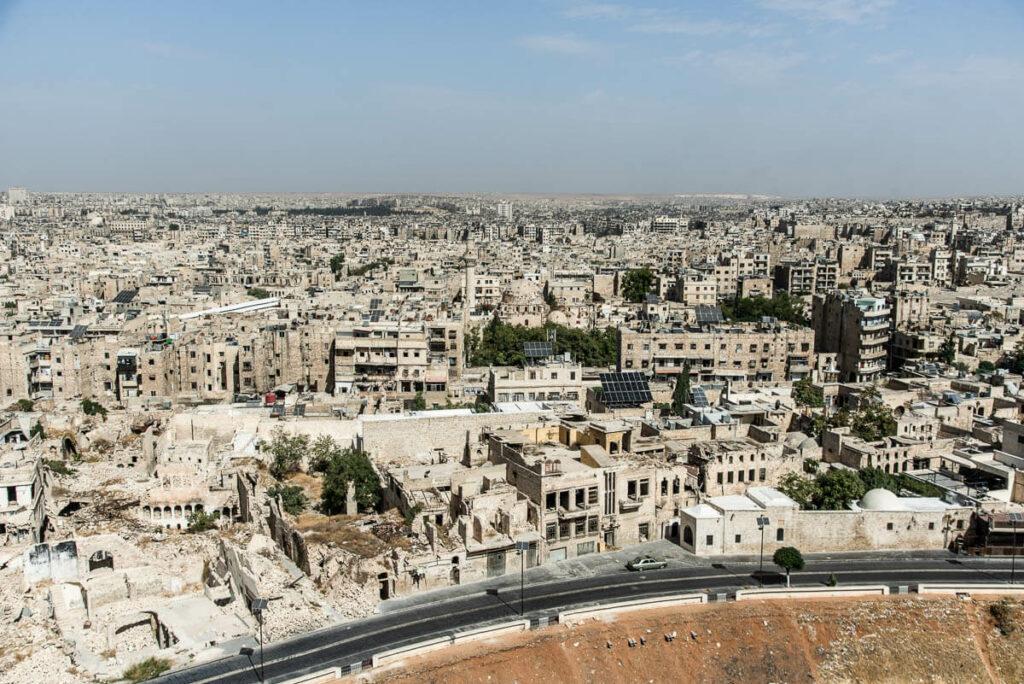
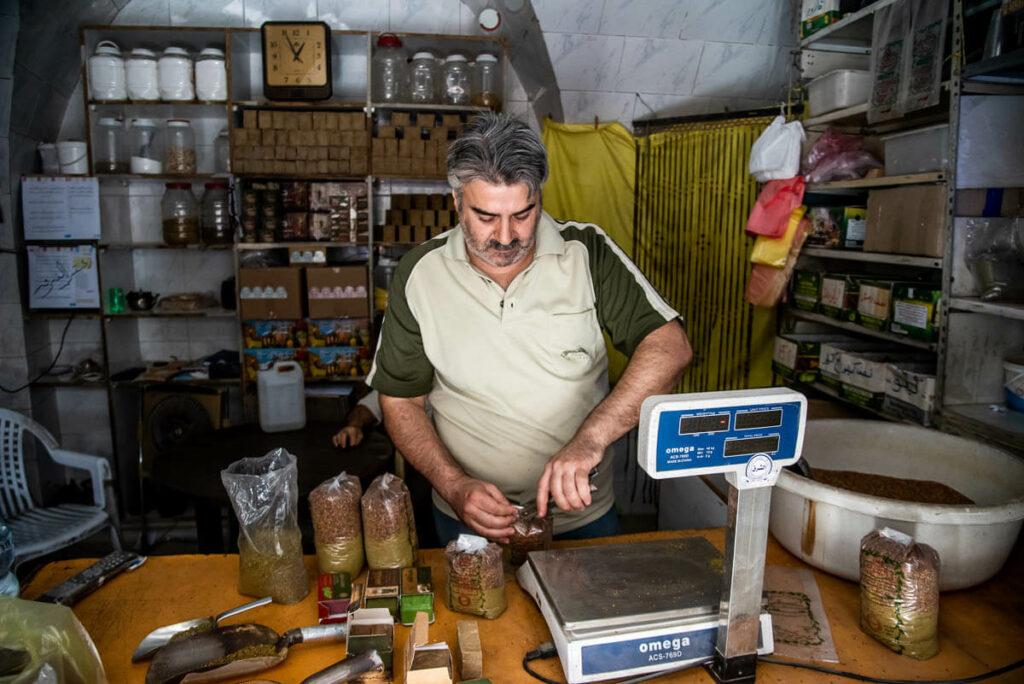
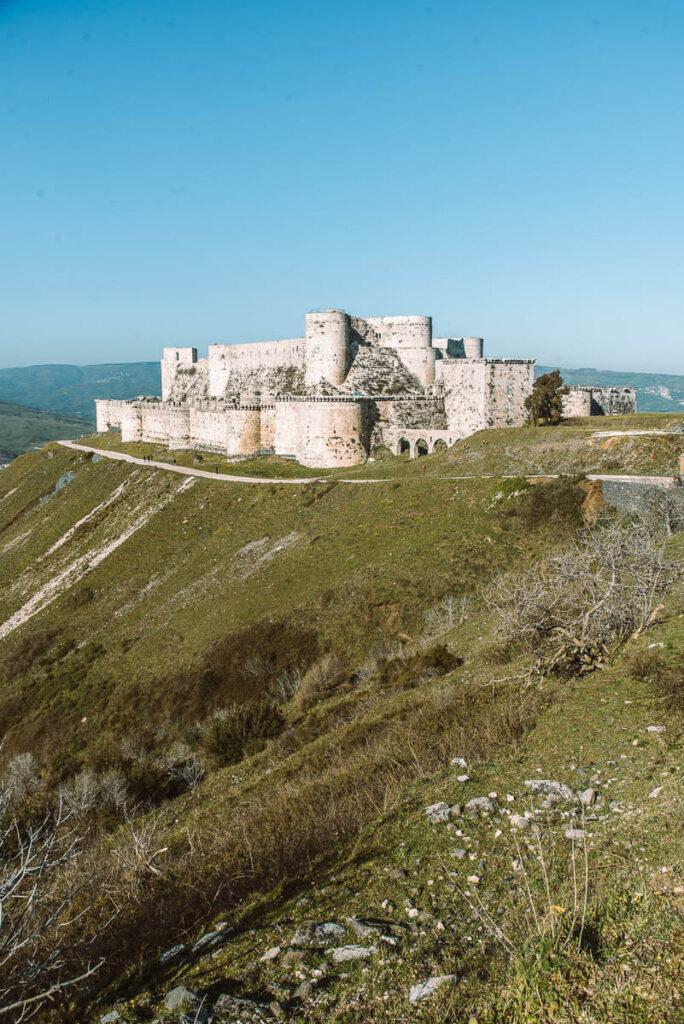
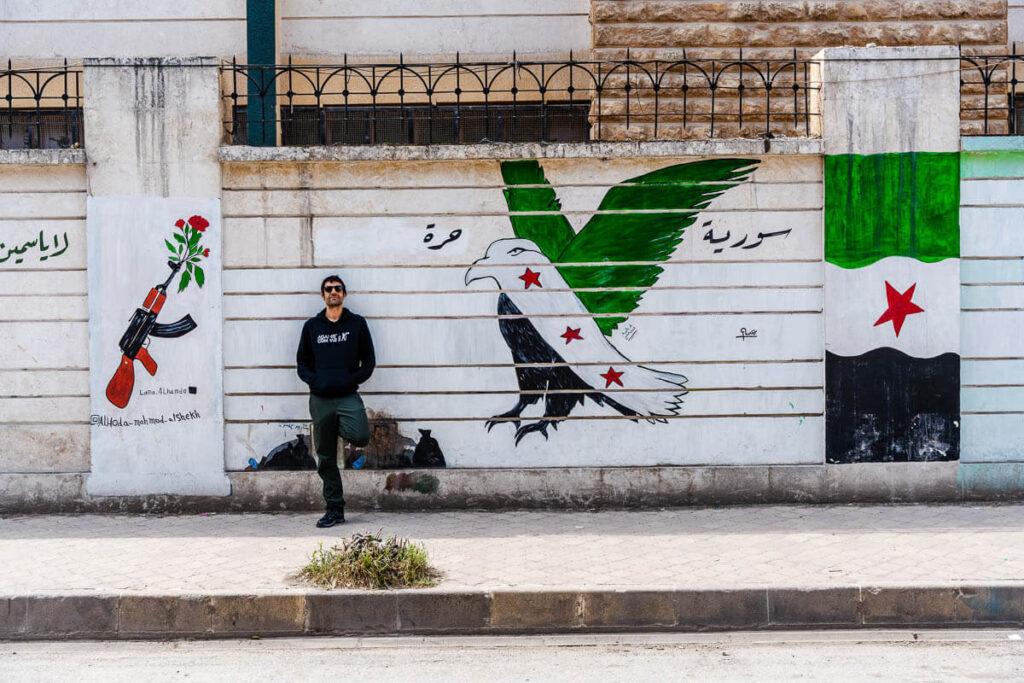
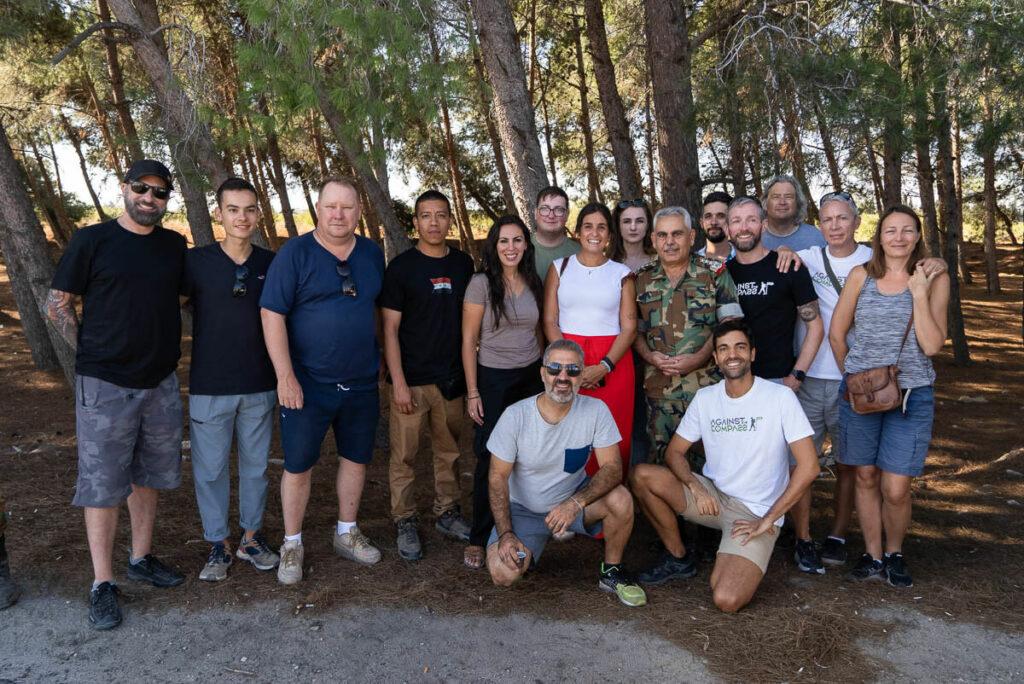
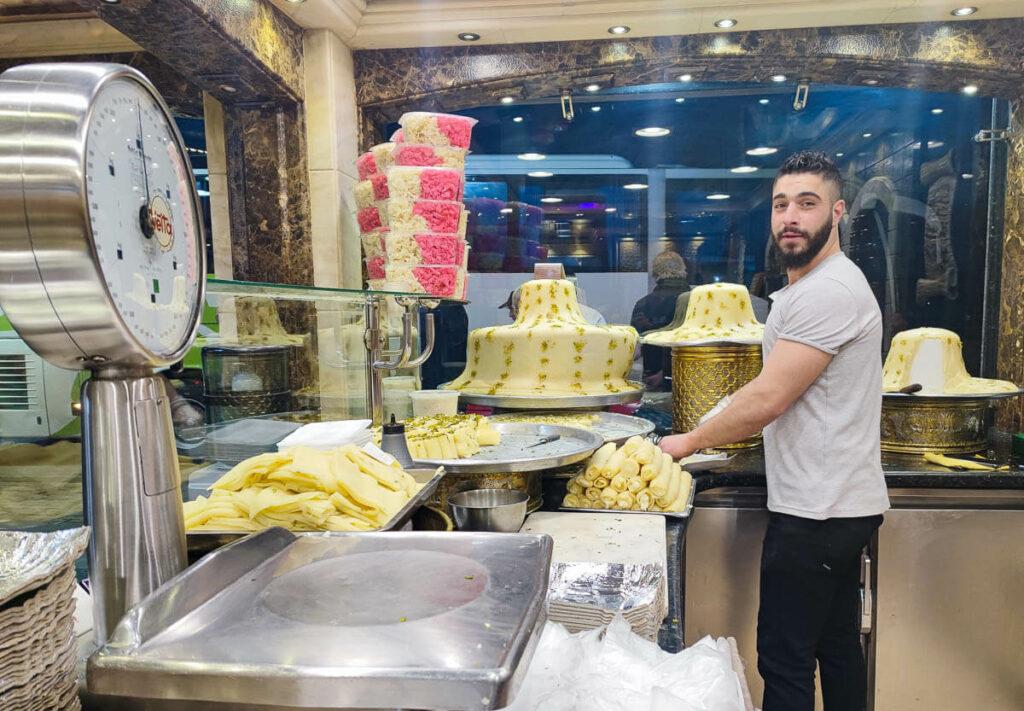
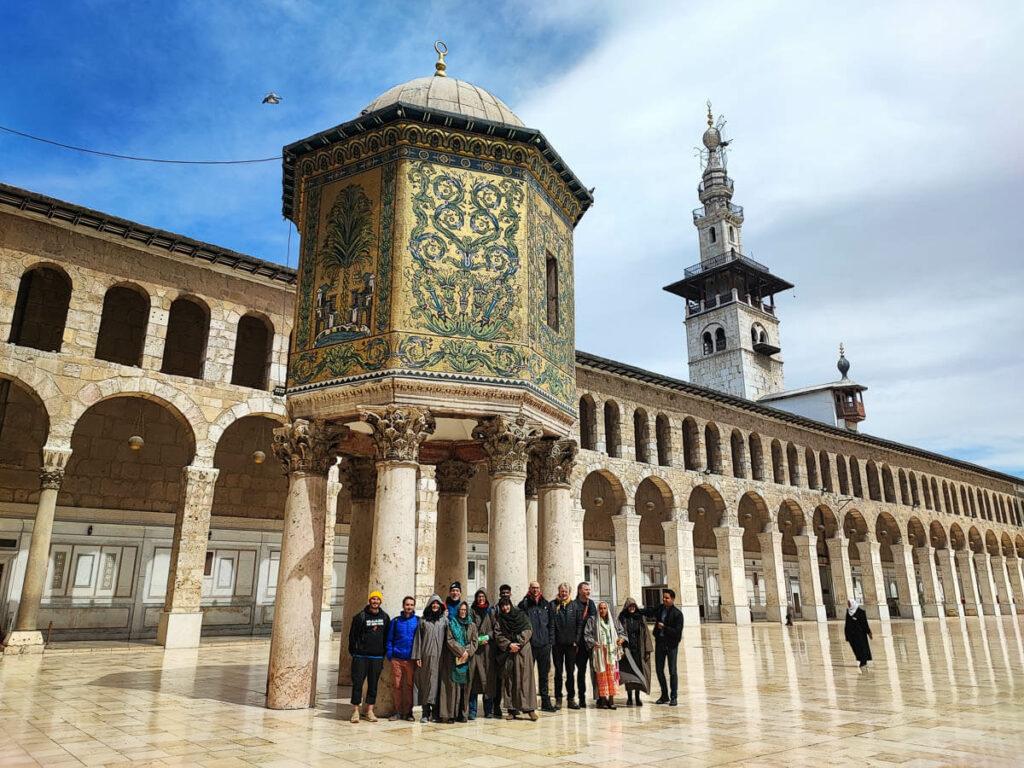
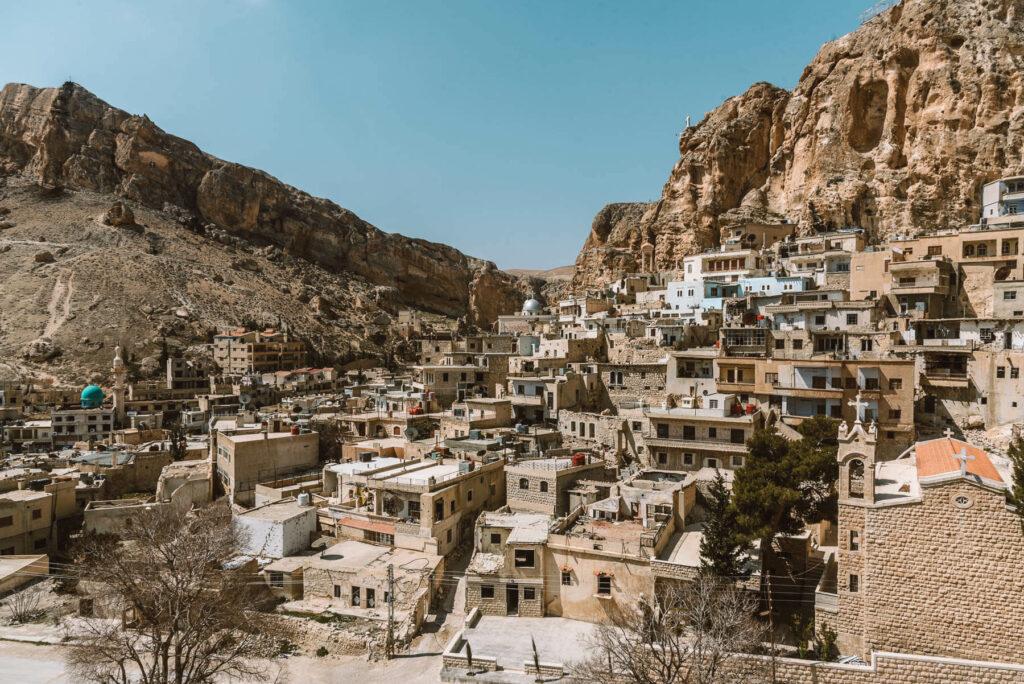
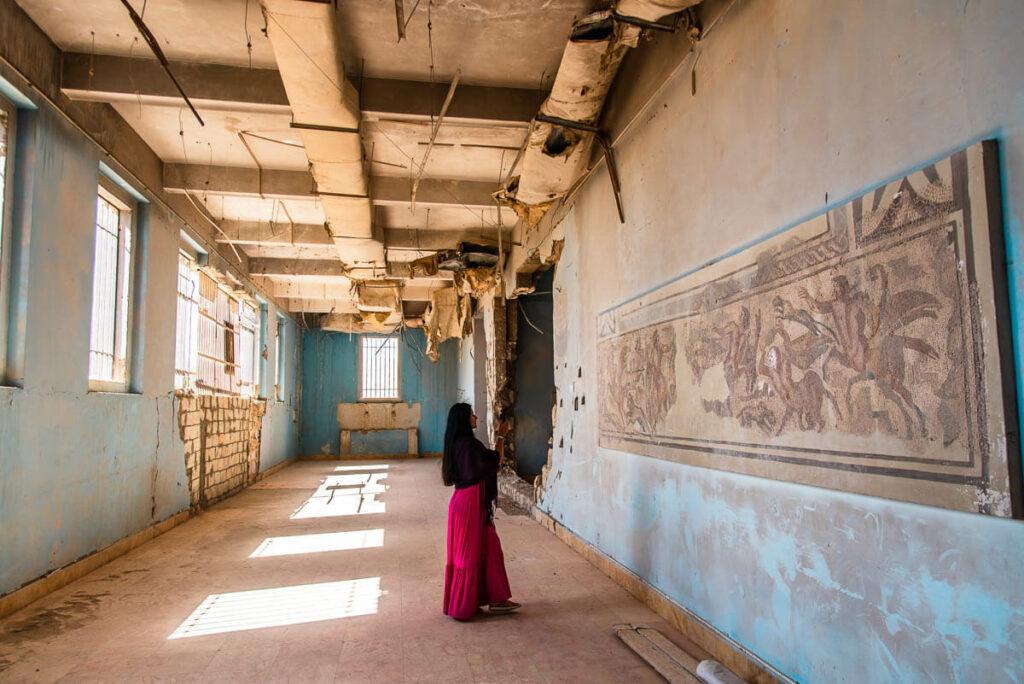
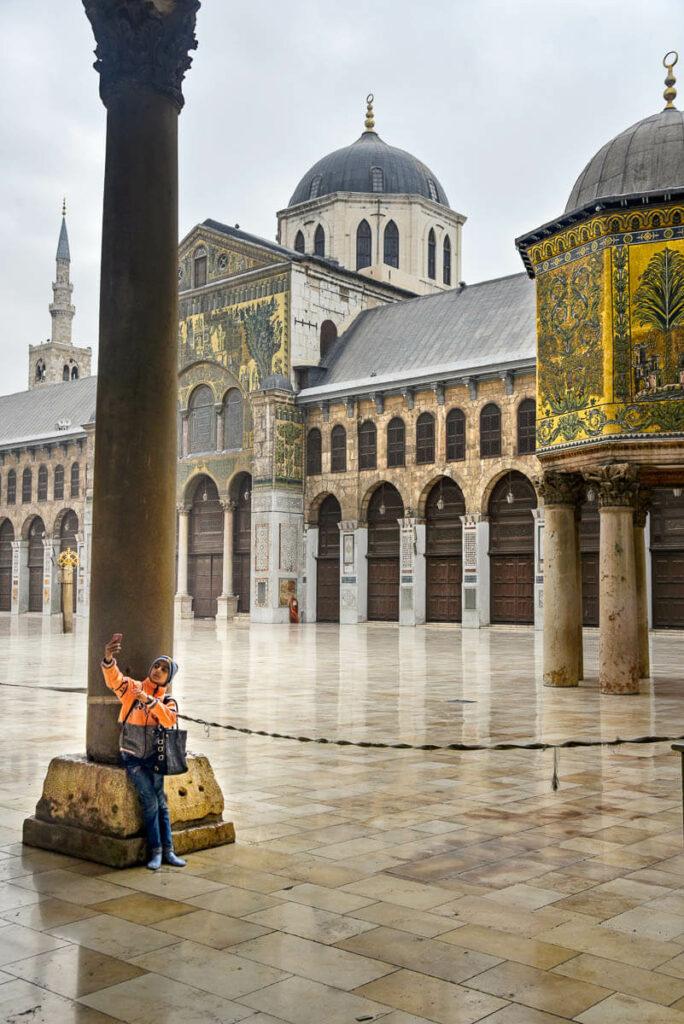
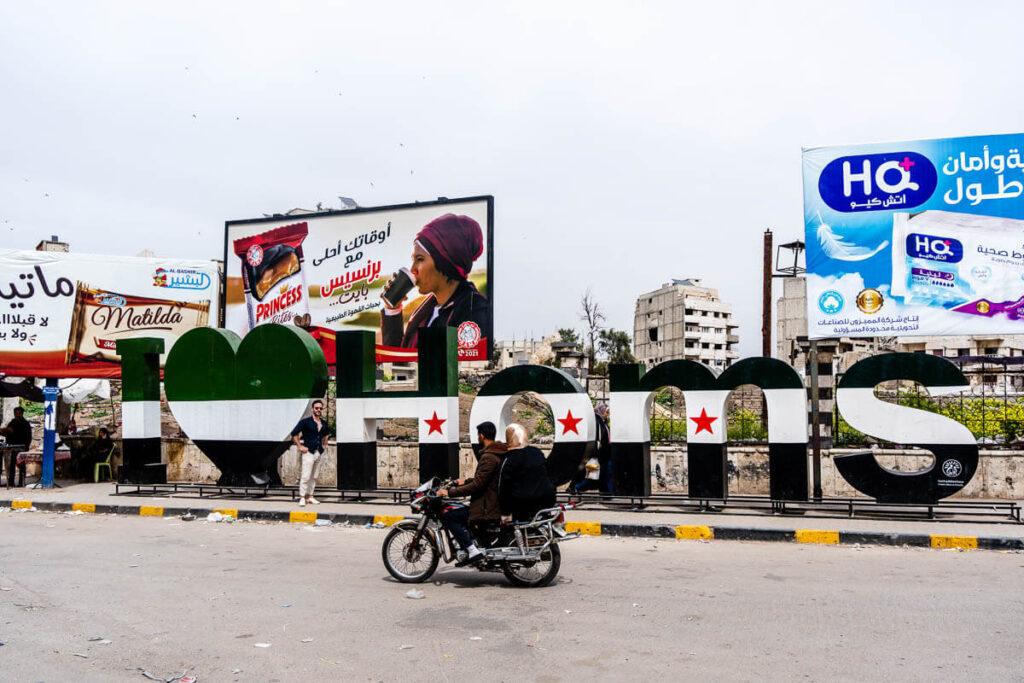
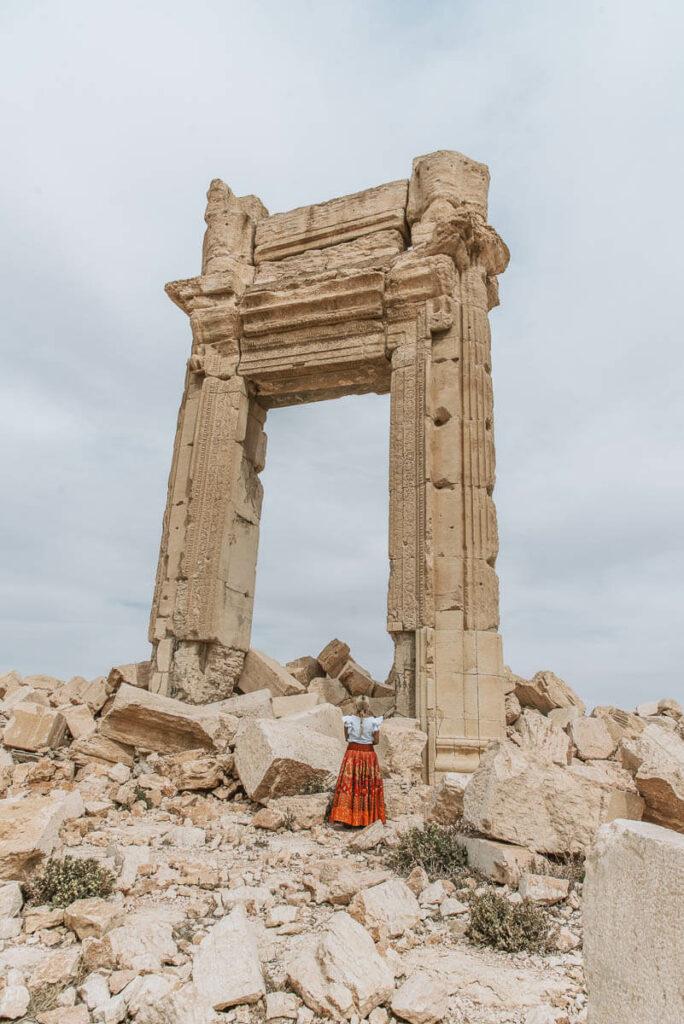
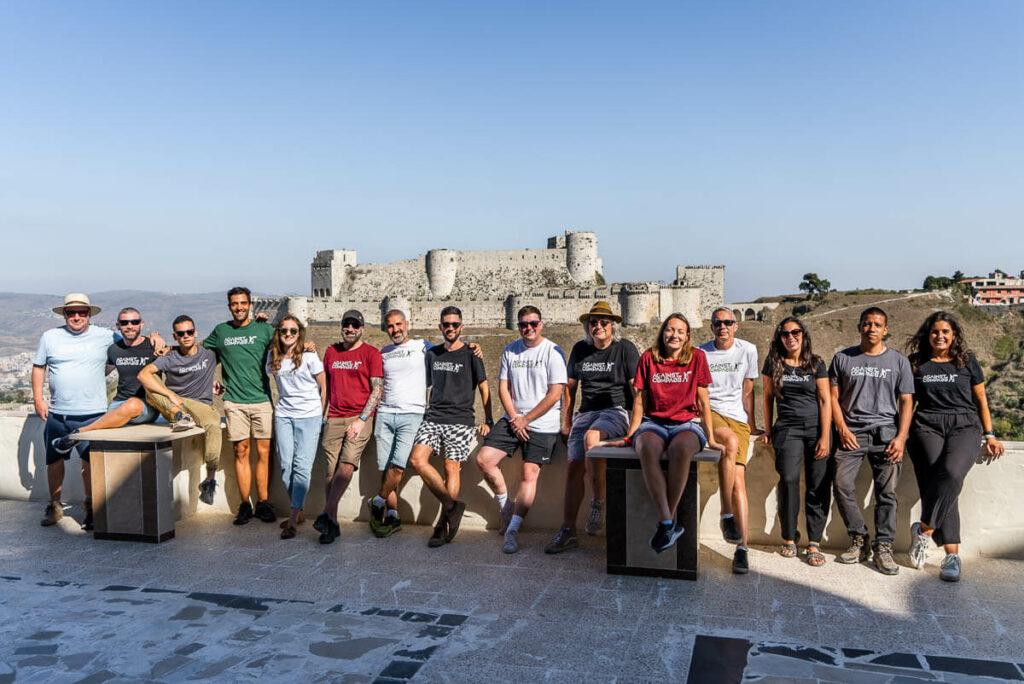
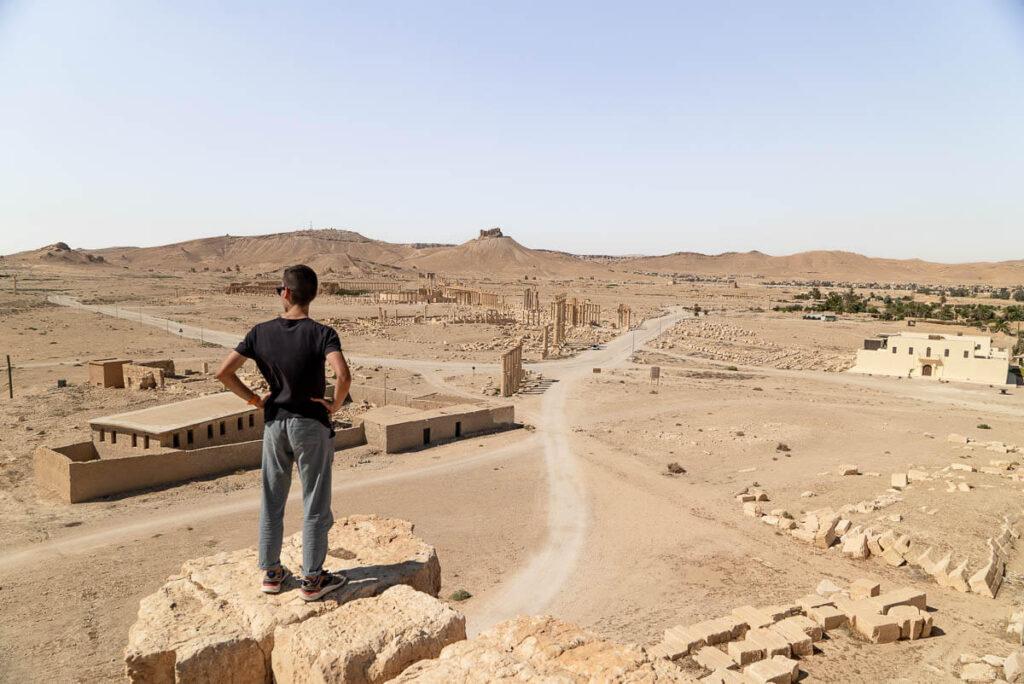
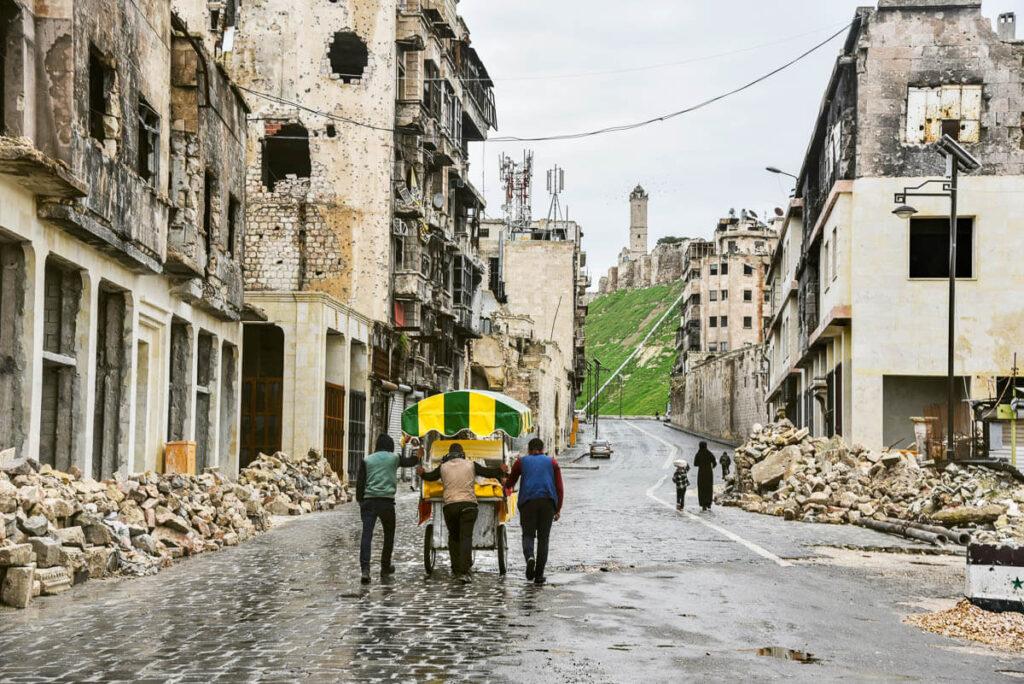
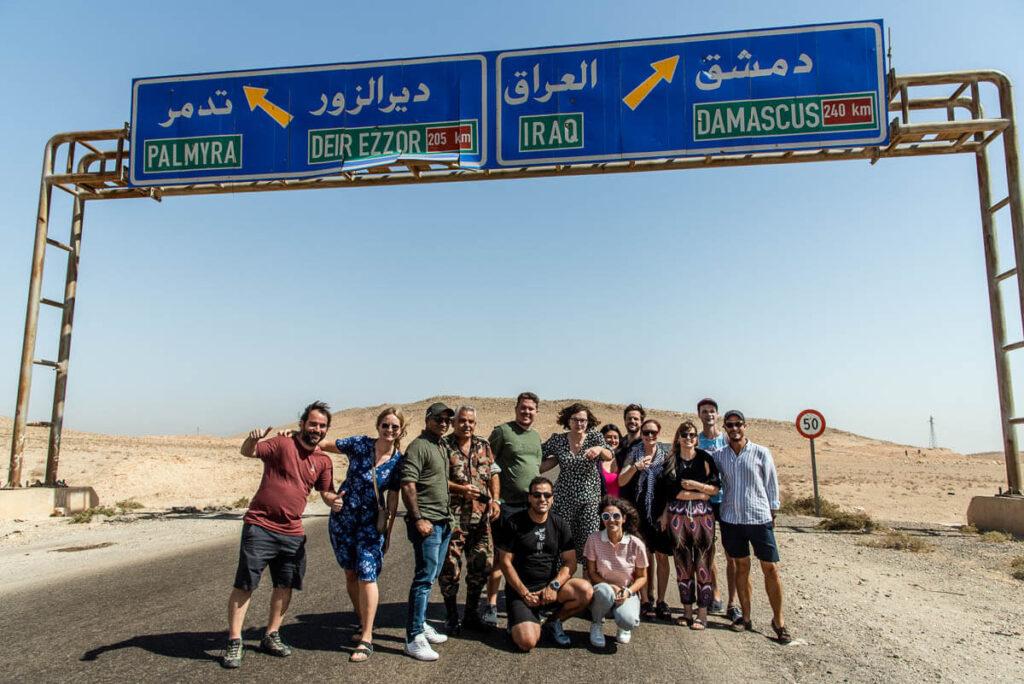
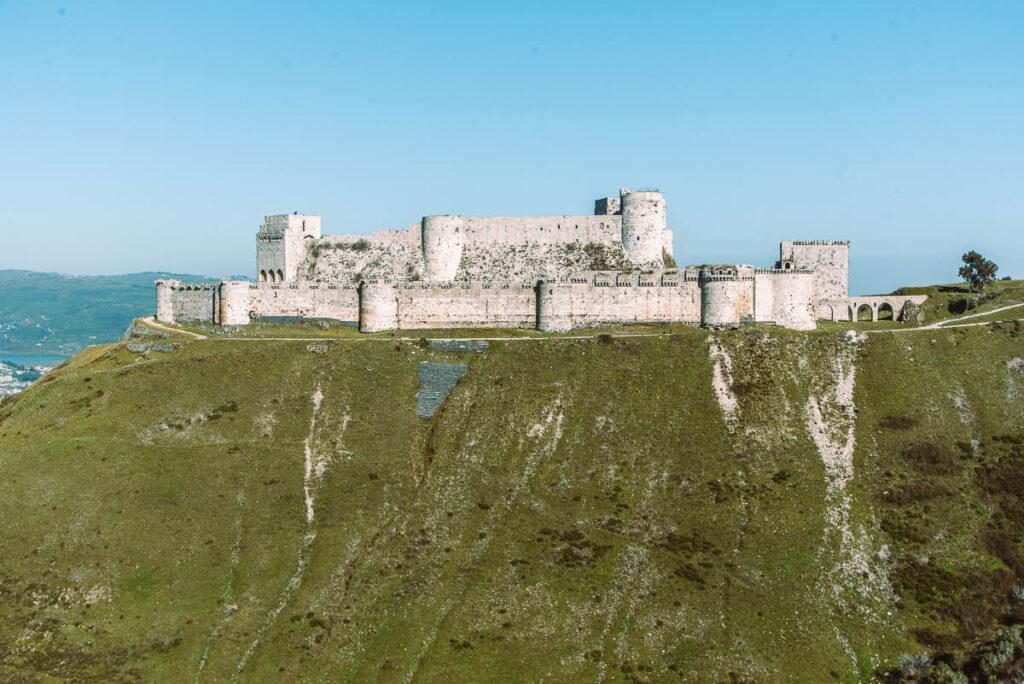
Note that we always keep the itinerary flexible, and it may be subject to change, depending on the political situation.
1 – Mar 30th: Arrival in Damascus (from Beirut)
2 – Mar 31st: Damascus Old City
3 – Apr 1st: Maaloula & Mar Musa
4 – Apr 2nd: Full day in Aleppo
5 – Apr 3rd: Hama, Krak de Chevaliers & Homs
6 – Apr 4th: Palmyra
7 – Apr 5th: Day trip to Bosra
8 – Apr 6th: New Damascus and departure
The tour will start at 8am in Beirut, the capital of Lebanon, from where we will drive towards the Syrian border and Damascus.
The whole journey takes 3 to 5 hours, with border crossing included.
Once in Damascus, we will check in at our hotel, followed by a traditional lunch and a stroll around the old city.
Nightlife in Damascus is particularly vibrant, especially in the Christian district during the weekend, an area filled with bars and restaurants, where we can all go for dinner and a few drinks.
With more than 5000 years of history, Damascus might easily be the oldest capital in the world, a city absolutely packed with historical sites, as well as lively souks and bazaars.
We will spend the entire day exploring the city’s most well-kept secrets, as well as landmarks such as the Umayyad Mosque (where Yahya is buried, John the Baptist for Christians) and Sayyidah Ruqayya Mosque, one of the most important shrines for Shia people.
As always, we will be visiting the city at our own pace, with plenty of time for photography and local interactions.
Overnight in Damascus.
On day 3, we will drive towards Aleppo, first stopping in Maaloula, one of the most important Christian towns in the Middle East, and one of the very few places in the world where people still speak Aramaic, the language of Jesus.
Once occupied by Al-Nusra, Maaloula was largely destroyed due to the recent war, but its most important churches and monasteries have been rebuilt, and we will visit two of them, where we might get the chance to meet nuns who were kidnapped and held as hostages for three months.
After Maaloula, we will also stop in Mar Musa, a mindblowing, skyscraper-shaped, 6th-century monastery raised in the middle of rocky mountains.
We should arrive in Aleppo in the evening. Free time for dinner and drinks.
Overnight in Aleppo.
Once the most populated city in Syria, and one of the most prominent cities in the Middle East, Aleppo was one of the most affected cities by the Syrian war.
Life, however, is coming back to Aleppo, visible in the ongoing reconstruction and all the people who are slowly returning to their beautiful home city.
During our visit, we will visit the Citadel of Aleppo – the last Syrian Army stronghold – as well as the historical souk and vibrant Christian district, which remained pretty untouched by the war, and is today filled with absolutely delicious restaurants serving Lebanese wine.
Overnight in Aleppo.
Aleppo to Krak de Chevaliers is a 4-hour ride, so we will break the journey in Hama, a pretty photogenic town, famous for its water wheels, all over the city.
After a 1-hour visit, we will continue our way to Krak des Chevaliers, once described by Lawrence of Arabia as the most wholly admirable castle in the world, absolutely gorgeous and surrounded by lush green hills.
We will have lunch in a restaurant with stunning castle views. After lunch, we will visit the Medieval fortress and then we will head to Homs.
Homs was, by far, the city most affected by the Syrian war, today mostly composed of destroyed buildings and rubble. Honestly, there’s not much left to see in Homs nowadays but we will do a quick visit.
Overnight in Homs.
Once one of the most important Roman cities, Palmyra is rich in both ancient and contemporary history, since the archaeological site was taken by ISIS on two separate occasions during the war. ISIS blew up the most important temple but the site is huge and most of its structures are still standing.
For visiting Palmyra, we do need to arrange a special permit.
After having a picnic lunch inside the ruins, we will head back to Damascus.
Overnight in Damascus.
On our 7th day, we will visit the southern part of Syria on a day trip to Busra, an ancient city home to one of the most admirable Roman amphitheaters in the whole world, as well as other important monuments.
In Bosra, the local Syrians are culturally different, similar to Bedouins.
We will have lunch in a traditional Bedouin tent, with locals from Bosra.
After lunch back to Damascus.
Overnight in Damascus.
After breakfast, we will visit the remaining tourist places in Damascus, including the new part of town, as well as do any necessary shopping.
Transfer to Beirut and end of the tour.
Transfer to and from Beirut
7 nights of accommodation (twin shared)
All necessary permits
Private transportation and driver around Syria
Breakfast and lunch
English-speaking knowledgeable Syrian guide
International tour leader
Entrance fees to the places listed in the itinerary
International flights to Beirut
Visa fees
Dinner
Alcoholic drinks or any extra drink
Single supplement. Having your own private room costs $325
March 30th to April 6th, 2026
$1890 US dollars
8 days
Led by Pau Valero
Here’s our honest opinion on why you should travel to Syria with Against the Compass.
Please note that this video was filmed and posted in 2023, when Syria was still under Bashar al-Assad’s regime.
For security reasons, the name of the hotels we stay will only be shared upon booking your spot.
The price of the tour includes accommodation in a twin room.
If you are a solo traveler, you will share the room with another like-minded traveler from the group.
If you want a single room, you will have to pay an additional $325.
The trip starts and ends in Beirut (Lebanon), and transfer to and from Damascus is included in the price.
The international airport in Beirut is called Beirut-Rafic Hariri International Airport (BEY), which has plenty of connections with anywhere in the Middle East and Europe.
If coming from Europe, common stopovers include Istanbul (either Pegasus or Turkish), Frankfurt (Lufthansa), or Paris (Air France).
If coming from the American continent or Australia, Doha (Qatar Airways) or Dubai (Emirates) are also worth checking.
With the new government, the visa for Syria is available on arrival, no need to make any pre-arrangements.
All nationalities, including US citizens.
Since June 2025, the cost of the visa (whether entering by land or through Damascus International Airport) is as follows:
The visa is valid for 30 days.
A minimum of 8 travelers.
All nationalities, including US passport holders.
We limit our tours to a maximum of 12-13 people.
To secure your spot on the tour, we require a deposit.
We accept payments in both Euros and US dollars. All details will be shared upon booking your spot.
Information about the risks and dangers of the trip:
The traveler is expressly informed that the activities included in the travel itinerary are adventurous and/or take place in conflict zones, which entail dangers and imply the risk of physical, and psychological injuries, and/or death for the traveler.
Due to the characteristics of the destination and/or activities, the specific risks and dangers of the trip are, by way of example but not limited to, those listed below:
War; terrorism; political instability; arbitrary detentions, gunfire in the activity area; and/or violent crime.
Regarding the potential dangers of the destination, travelers are advised to consult the travel recommendations for the destination country provided by their country’s Ministry of Foreign Affairs. For example, in the case of the Foreign, Commonwealth & Development Office (FCDO), these recommendations can be accessed on the following link: https://www.gov.uk/foreign-travel-advice/syria
FCDO advises against all travel to Syria due to the ongoing conflict and unpredictable security conditions.
Yes. If you want to join any of our expeditions, you must purchase travel insurance.
We recommend IATI Insurance.
Why do we recommend IATI?
Against the Compass has been a partner of IATI for a very long time. We personally know their CEO and marketing team, and we collaborate regularly, so in the unlikely event that something happens, we know exactly what to do.
Moreover, IATI Insurance covers all the countries where the FCDO advises against all travel, something that most insurance companies don’t.
You can also benefit from a 5% discount by purchasing it through the link below.
Get a quote here to claim your discount
Can I use a different company?
Yes, you can, as long as your insurance covers the destination you’re travelling to.
Please check our General Conditions.
However, specific conditions might apply depending on the destination. Example: when the trip includes airfare.
Full details will be shared upon booking your spot.